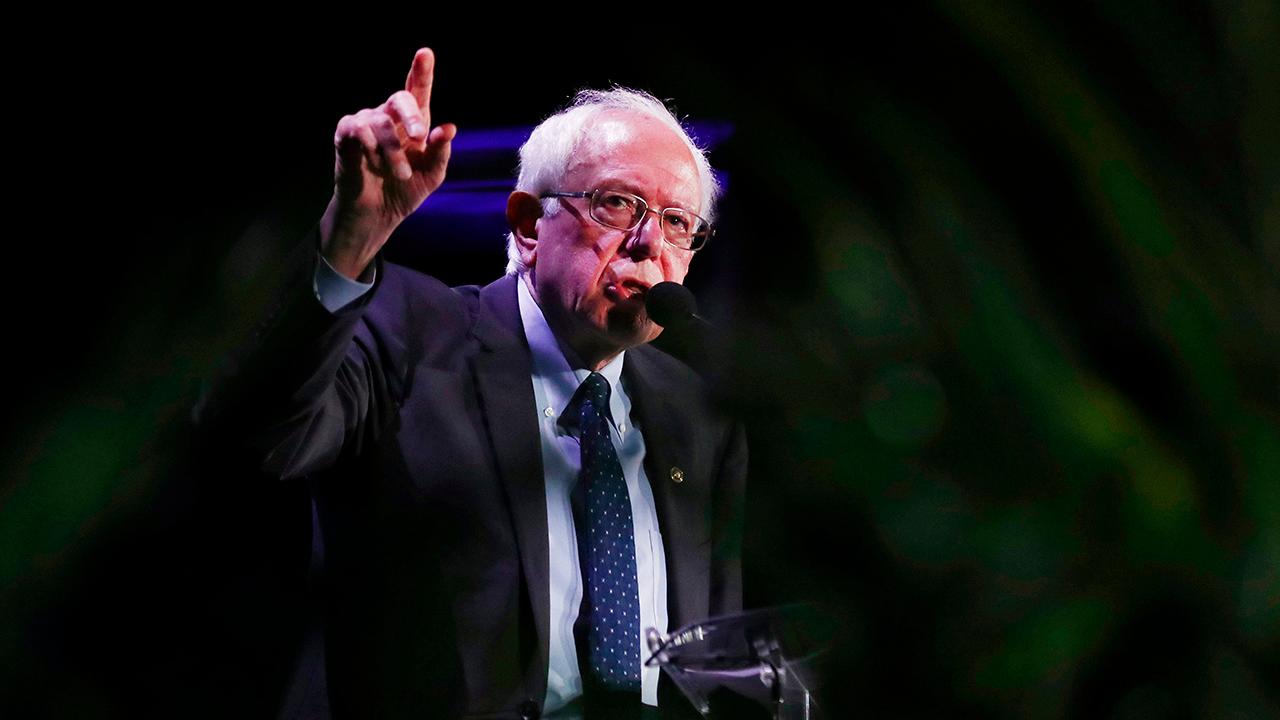Just how much does Medicare-for-all really cost?
Medicare-for-all could cost trillions of dollars in just 10 years even if the majority of Americans would benefit from the program, according to a new report.
The universal healthcare program would require an additional $34 trillion in federal spending during its first decade in operation, according to a study published by the Urban Institute and Commonwealth Fund. The study did not specifically examine any of the proposals introduced by 2020 Democratic hopefuls, some of whom have not explained how they would pay for the proposal.
"As the 2020 campaign heats up, it’s critical that we understand how various health reform proposals will affect health care costs, household budgets, and health insurance coverage," the report states.
Medicare-for-all, which would eliminate all private insurance in the country, would ultimately slash the number of uninsured people living in the United States, including undocumented immigrants, from 27.5 million people to zero. More than 331 million people would have healthcare coverage.
Employer, household, and state spending would be expected to decline considerably, but by less than the increase in federal spending, the report states.
Medicare-for-all, which is examined in the report as the "Single Payer Enhanced" option, has been proposed by senators Bernie Sanders and Elizabeth Warren, who are among the front runners for the Democratic nomination for president. During the fourth Democratic debate on Tuesday night, Massachusetts Sen. Elizabeth Warren refused to address how she would pay for Medicare-for-all if elected — a question that could come back to haunt her after a new study laid out the staggering cost of single-payer health care.
During the fourth Democratic debate on Tuesday night, Massachusetts Sen. Elizabeth Warren refused to address how she would pay for Medicare-for-all if elected. On Tuesday night, Mayor Pete Buttigieg, of South Bend, Indiana, took a swing at Warren, who’s yet to release her own health care plan.
"Your signature is to have a plan for everything, except this," Buttigieg said to Warren. "No plan has been laid out to explain how a multi-trillion-dollar hole in this plan that Sen. Warren is putting forward is supposed to get filled in."
In debates, Warren insists “I’m with Bernie,” who wrote the original Medicare-for-all proposal. And on her campaign website, there is a statement in support of Medicare-for-all, but the plan lacks specifics.
Every American should be able to get the care they need when they need it. This is a goal worth fighting for, and Elizabeth is in this fight all the way. That's why Elizabeth will fight for Medicare for All.
Buttigieg, like former Vice President Joe Biden, proposed a mix of private and public health insurance. Under that plan, individuals could choose to opt into a government-run plan if they wanted, but would not be forced to do so.
Such a plan would cost roughly $1.5 trillion over 10 years, but would leave about 6.6 million people — all of whom are in the country illegally — uninsured. Individuals would also still be required to pay premiums and deductibles.
Still, despite the huge cost incurred by the government, the study found that American consumers would come out the winner: With the entire population covered — meaning no more deductibles or premiums — household and state health spending would decline considerably, the study found.
However, the authors believe the overall spending could decrease and the number of people insured could increase if other reforms were made.
"The U.S. could achieve near-universal coverage, and even decrease national health spending, by building on our current public-private insurance system," the report states.




















